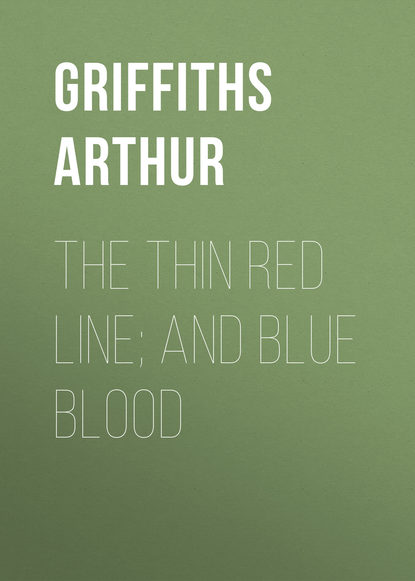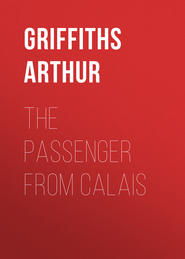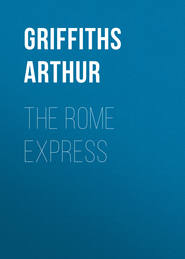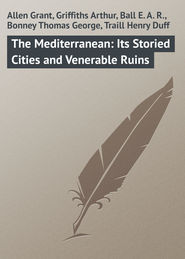По всем вопросам обращайтесь на: info@litportal.ru
(©) 2003-2024.
✖
The Thin Red Line; and Blue Blood
Настройки чтения
Размер шрифта
Высота строк
Поля
"Lord Raglan himself entrusted me with the message."
"I can't believe it. It is utterly impracticable: for any useful purpose. Quite unequal, quite inadequate, to the risks and frightful loss it must entail."
The impetuous aide-de-camp showed visible signs of impatience. While the general debated and discussed his orders, instead of executing them with instant, unquestioning despatch, a great opportunity was flitting quickly by.
"Lord Raglan's orders are"—Nolan spoke with an irritation that was disrespectful, almost insubordinate—"his lordship's orders are that the cavalry should attack immediately."
"Attack, sir!" replied Lord Lucan, petulantly; "attack what? What guns?"
"There, my lord, is your enemy," replied Nolan, with an excited wave of his arm; "there are your guns!"
The exact meaning of the gesture no man survived to tell, but its direction was unhappily towards a formidable Russian battery which closed the gorge of the north valley, and not to the heights crowned by the captured redoubts.
Lord Lucan, heated by the irritating language of his junior officer, must have lost his power of discrimination, for although his first instructions clearly indicated the guns in the redoubt, and his second, brought by Nolan, obviously referred to the same guns, the cavalry general was misled—by his own rage, or Nolan's sweeping gesture, who shall say?—misled into a terrible error.
He conceived it to be his duty to send a portion of his cavalry against a formidable battery of Russian guns, well posted as they were, and already sweeping the valley with a well-directed, murderous fire.
Of the two cavalry brigades, the Light was still fresh and untouched by the events of the day. The Heavy Brigade, as we have seen, had already done splendid service in routing the Russian cavalry. The turn of the Light Brigade had come, although, unhappily, the task entrusted to it was hopeless, foredoomed to failure from the first.
It stood close by, proudly impatient, its brigadier, Lord Cardigan, at its head.
To him the divisional general imparted Lord Raglan's order.
"You are to advance, Lord Cardigan, along the valley, and attack the Russians at the far end," was the order he gave.
"Certainly, sir," replied Lord Cardigan, without hesitation. "But allow me to point out to you that the Russians have a battery in the valley in our front, and batteries and riflemen on each flank."
"I can't help that," said Lord Lucan; "Lord Raglan will have it so. You have no choice but to obey."
Lord Cardigan saluted with his sword; then, rising in his stirrups, he turned to his men, and cried aloud in a full, firm voice—
"The brigade will advance!"—to certain death, he might have added, for he knew it, although he never quailed. But, settling himself in his saddle, as though starting on a promising run with hounds, and not on a journey from which there was no return, he said, with splendid resignation, as he prepared to lead the charge—
"Here goes for the last of the Brudenells!"[2 - The family name of the Earls of Cardigan was Brudenell.]
All this had passed in a few minutes, and then three lines of dauntless horsemen—in the first line, Dragoons and Lancers; in the second, Hussars; in the third, Hussars and more Dragoons—galloped down the north valley on their perilous and mistaken errand.
They were already going at full speed, when a single horseman, with uplifted arm and excited gesture, as though addressing the brigade, crossed their front. It was Nolan, who thus seemed to be braving the anger of Lord Cardigan by interfering with the leadership of his men.
What brought Nolan there? The inference is only fair and reasonable that at the very outset he had recognised the misinterpretation of Lord Raglan's orders, and was seeking to change the direction of the charging horsemen, diverting them from the Russian battery towards the redoubts, their proper goal.
Fate decreed that this last chance of correcting the terrible error should be denied to the Light Brigade. A Russian shell struck Nolan full in the chest, and "tore a way to his heart." By his untimely death the doom of the light cavalry was sealed.
As the devoted band galloped forward to destruction, all who observed them stood horror-stricken at the amazing folly of this mad, mistaken charge.
"Great heavens!" cried Lord Raglan. "Why, they will be destroyed! Go down, Calthorpe, and you, Burghersh, and find out who is responsible for this frightful mistake!"
"Magnificent!" was the verdict of Bosquet, a friendly but experienced French critic. "But it is not war."
Not war—murder, rather, and sudden death.
The ceaseless fire of the guns they faced wrought fearful havoc in the ranks of the horsemen as they galloped on. Still the survivors went forward, unappalled; but it was with sadly diminished numbers that they reached the object of their attack. The few that got to the guns did splendid service with their swords. The gunners were cut down as they stood, and for the moment the battery was ours. But it was impossible to hold it; the Light Brigade had almost ceased to exist. Presently its shattered remnants fell slowly back, covered by the Heavies against the pursuit of the once more audacious Russian cavalry.
Barely half an hour had sufficed for the annihilation of nearly six hundred soldiers, the flower of the British Light Horse. The northern valley was like a shambles, strewn with the dead and dying, while all about galloped riderless horses, and dismounted troopers seeking to regain their lines on foot. Quite half of the whole force had been struck down, among the rest Hugo Wilders, whose forehead a grape-shot had pierced.
The muster of regiments after such a fight was but a mournful ceremony. When at length the now decimated line was re-formed, the horror of the action was plainly seen.
"It was a mad-brained trick," said Lord Cardigan, who had marvellously escaped—"a monstrous blunder, but it was no fault of mine."
"Never mind, my lord!" cried many gallant spirits. "We are ready to charge again!"
"No, no, men," replied Lord Cardigan, hastily; "you have done enough."
It was at this moment that Lord Raglan rode up, and angrily called Lord Cardigan to account.
"What did you mean, sir, by attacking guns in front with cavalry, contrary to the usages of war?"
"You must not blame me, my lord," replied Lord Cardigan. "I only obeyed the orders of my superior officer," and he pointed to Lord Lucan, whom Lord Raglan then addressed with the severe reproof—
"You have sacrificed the Light Brigade, Lord Lucan. You should have used more discretion."
"I never approved of the charge," protested Lord Lucan.
"Then you should not have allowed it to be made."
The battle of Balaclava was practically over, and, although they had suffered no reverse, its results were decidedly disadvantageous to the allies. The massacre of the Light Brigade encouraged the Russian general to advance again; his columns once more crossed the Woronzoff road, and re-occupied the redoubts in force. The immediate result was the narrowing of the communications between the front and the base. The use of a great length of this Woronzoff road was forbidden, and the British were restricted to the insufficient tracks through Kadikoi. A principal cause this of the difficulties of supply during the dread winter now close at hand.
Another lesser result of the Russian advance was that McKay and his men that afternoon were unable to rejoin their regiment by the road they had travelled the day before. He returned to camp by a long and circuitous route, through Kadikoi, instead of by the direct Woronzoff road.
It was late in the day, therefore, when he was once more at his headquarters. He had much to tell of his strange adventures on these two eventful days, and the colonel, who had at once sent for him, kept him in close colloquy, plying him with questions about the battle, for more than an hour. It was not till he had heard everything that Colonel Blythe handed the sergeant-major a bundle of letters and papers, arrived that morning by the English mail.
"There is good news for you, McKay," said he. "I was so interested in your description that I had forgotten to tell you. Let me congratulate you; your name is in the Gazette," and the Colonel, taking McKay's hand, shook it warmly.
McKay carried off his precious bundle to his tent, and, first untying the newspaper, hunted out the Gazette.
There it was—
"The Royal Picts—Sergeant-Major Stanislas Anastasius Wilders McKay to be Ensign, vice Arrowsmith, killed in action."
They had lost no time; the reward had followed quickly upon the gallant deed that deserved it. Barely a month had elapsed since the Alma, yet already he was an officer, bearing the Queen's commission, which he had won with his own right arm.
His letters were from home—from his darling mother, who, in simple, loving language, poured forth her joy and pride.
"My dearest, bravest boy," she said, "how nobly you have justified the choice you made; you were right, and we were wrong in opposing your earnest wish to follow in your poor father's footsteps—would that he had lived to see this day! It was his spirit that moved you when, in spite of us all, of your uncles' protests and my tears, you persisted in your resolve to enlist. They said you had disgraced yourself and us. It was cruel of them; but now they are the first to come round. I have heard from both your uncles; they are, of course, delighted, and beg me to give you their heartiest good wishes. Uncle Ralph said perhaps he would write himself; but he is so overwhelmed with work at the Munitions Office he may not have time. Uncle Barto you will, perhaps, see out in the Crimea; he has got command of the Burlington Castle, one of the steamers chartered from his Company, and is going at once to Balaclava.
"Oh, my sweet son be careful of yourself!" went on the fond mother, her deep anxiety welling forth. "You are my only, only joy. I pray God hourly that He may spare your precious life. May He have you in His safe keeping!"
The reading of these pleasant letters occupied Stanislas till nightfall. Then, utterly wearied, but with a thankful, contented heart, he threw himself upon the ground, and slept till morning.








